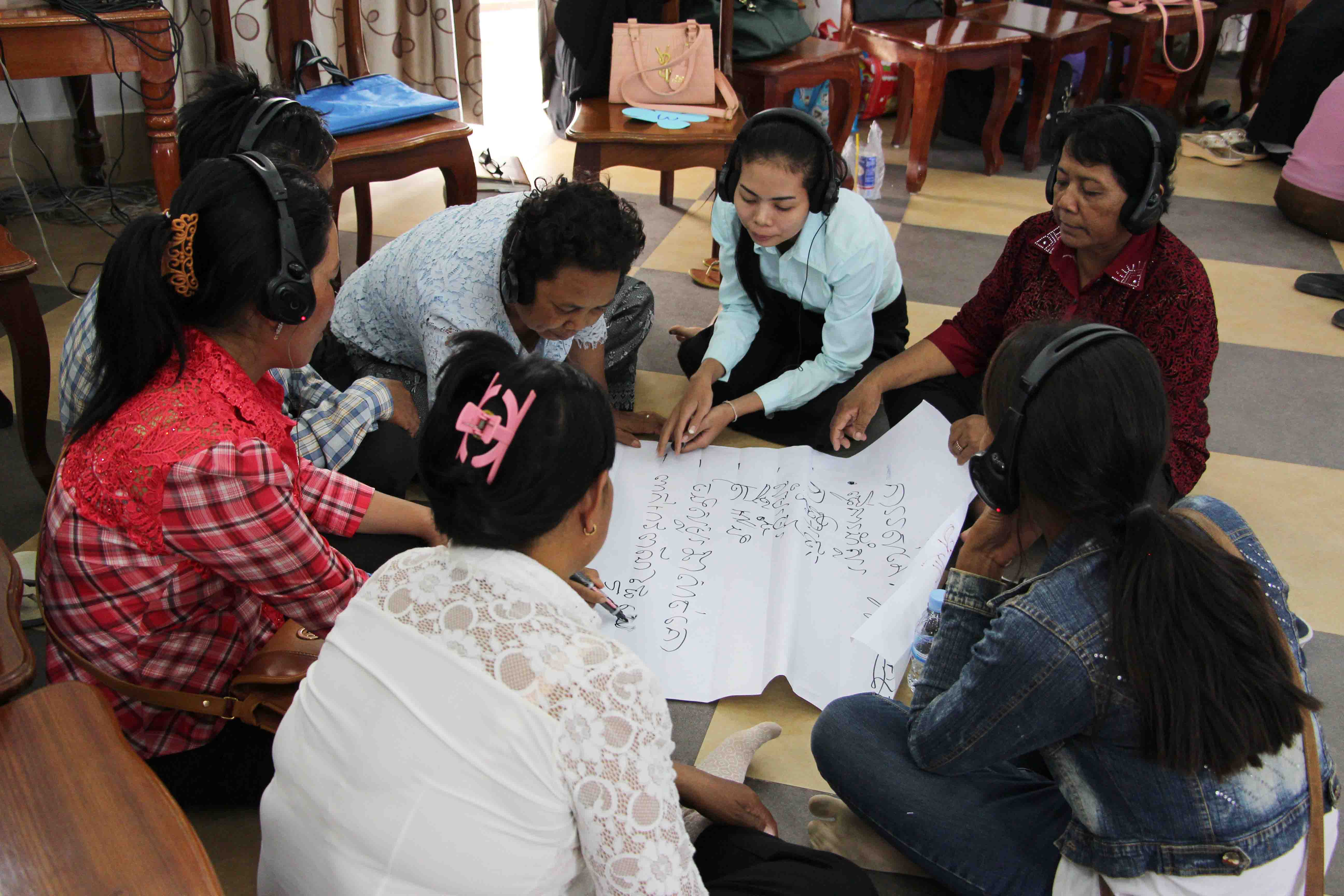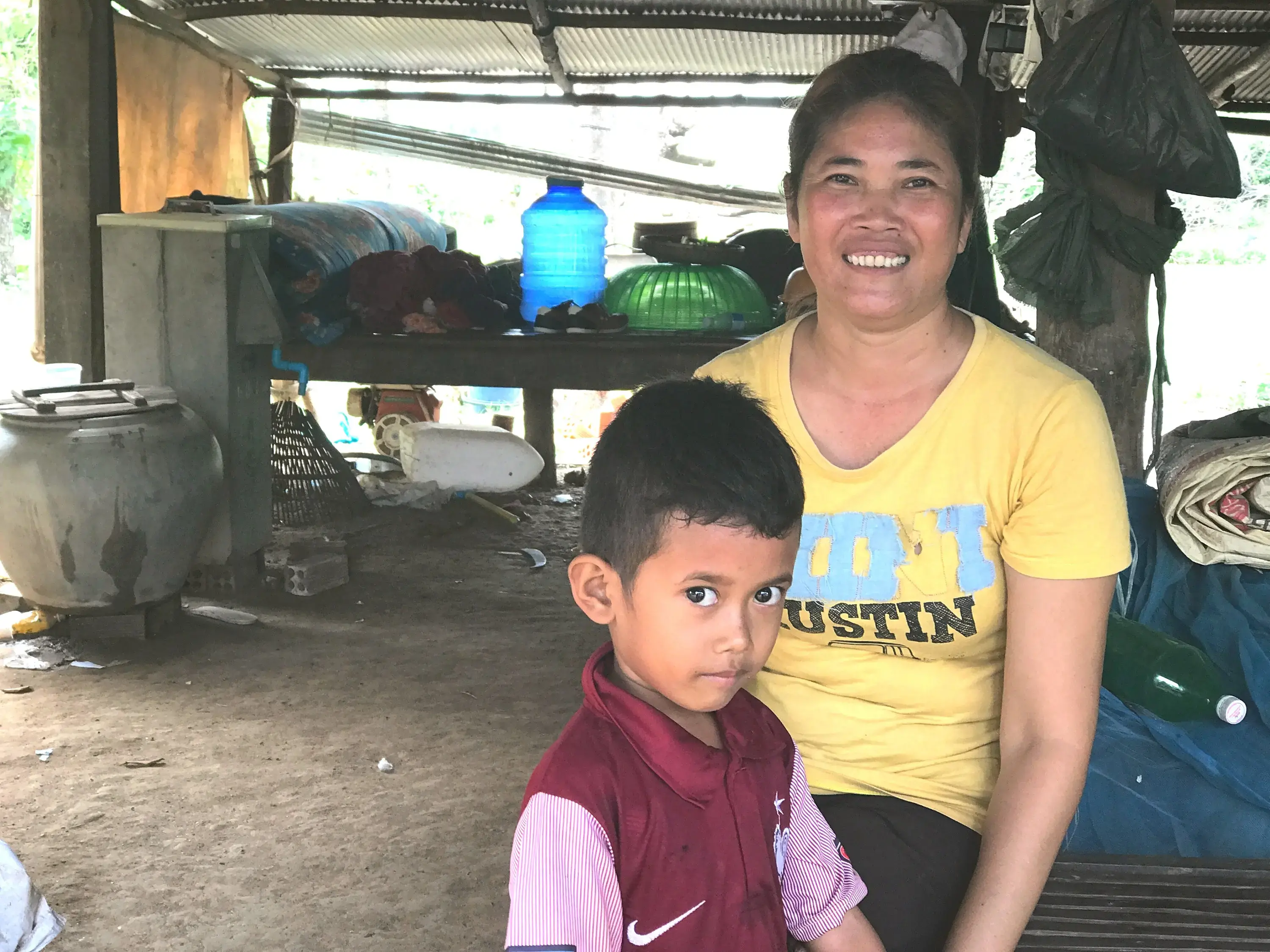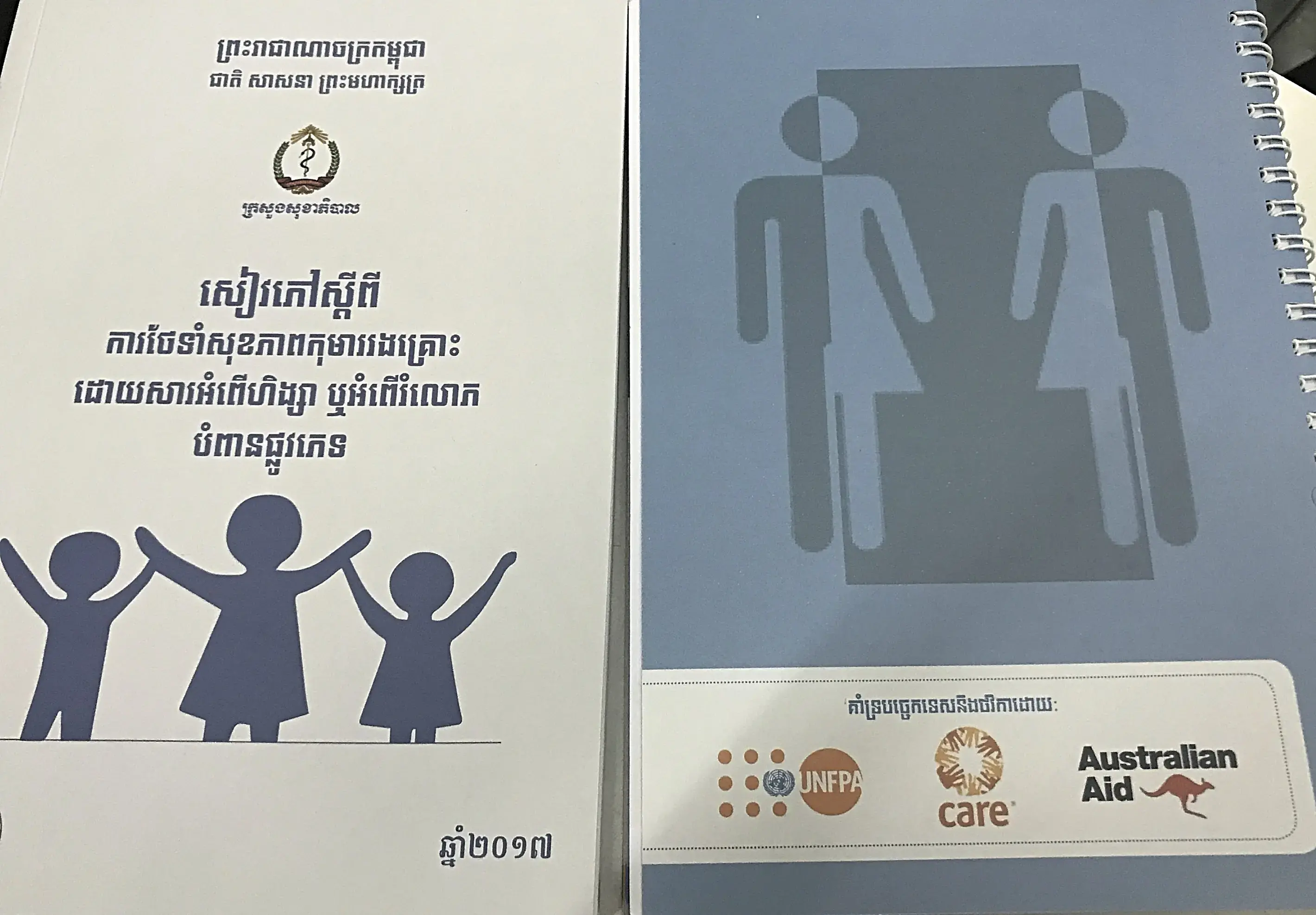“What are the joys in caregiving?” The question filled the room of around 40 people in Kampong Cham province in which a training programme on the primary prevention on violence against women and girls was conducted.
“I am happy when my child eats well, sleeps well and studies hard,” answered one of the participants of the programme. Another participant said “For me, the best part about caregiving is playing with my children and especially I love it when they hug me. It makes me feel warm and contented.”
These participants are adolescent caregivers. Some of them are parents, guardians, teachers or local youth service providers. Trained to be local facilitators, these participants are expected to share their knowledge gained from the training with people in their community.
Under the theme “Shaping our Future: Developing Healthy and Happy Relationships”, the training programme is organized by the Ministry of Women Affairs and Provincial Department of Women Affairs in Kampong Cham with the support from the UNFPA Cambodia.
The 10-day intensive training programme (26 May - 6 June 2016) aims to foster the positive links between the adolescents and caregivers and promote the primary prevention of violence against women and girls.
How healthy relationships between adolescents and caregivers can help prevent violence against women and girls
Childhood experiences of abuses is cited in the UN Multi-Country Study on Men and Violence in Asia and the Pacific as one of the factors associated with men’s perpetration of violence, affirming the generational cycle of violence. Other factors include depression and practices stemming from gender inequality and dominant ideals of manhood.
It is therefore important to break the cycle of violence by strengthening the positive relationship between adolescents and caregivers.
UNFPA’s intervention in the Kampong Cham province designed to equip local facilitators with understanding of positive parenting without gender steoreotyping. The programme also aims to provide the locals knowledge on how to manage their emotions and how to seek help when they are exposed to violence. UNFPA will work to ensure that participants of the programme will be able to share their knowledge and skills within their community.

Building skills and confidence
“What I expect to gain from the training is that I will be able to project myself as a trustworthy person so that young people feel comfortable opening up to me especially, when they are seeking help. I want to use my knowledge today to help train grade 6 students at my school as they are going through the adolescent stage,” said Them Thida, a 23-year-old primary school teacher at Nak Ta Sneng School who attended the training.
Another participant of the programme, Phoeun Sokhim, a 33-year-old housewife who got the support from her husband to join the training, said "Violence against women is not uncommon in my neighborhood, but it is hard to intervene in one’s family affairs. I hope the training would equip me skills on how to effectively talk to people."
Trainers of the programme brought to the local facilitators’ attention not only understanding of prevention against violence but also skills in facilitation, negotiation, participant mobilization and recruitment. Those skills will help the facilitators in organizing their own intervention workshops and outreach programmes in their community.
Teach back method was used in the training, allowing participants to demonstrate their skills and practice what they have learned so that they could be more confident.
After the training programme, participants will be given the manuals on “Shaping our Future: Developing Healthy and Happy Relationships” which serve as a guide for them.

The training programme is part of the violence against women and girls primary prevention intervention project in Cambodia under a regional joint program of UN agencies (UNFPA, UNDP, UN Women and UNV) managed by Partners for Prevention.
“You may wonder why we selected Kampong Cham to implement this work. From the recent findings from the Cambodia Demographic and Health Survey, Kampong Cham has the second highest prevalence rate in physical violence amounted to around 34%,” said Dr. Marc G. L. Derveeuw, UNFPA Cambodia Country Representative in his remarks.
The UNFPA Cambodia and our partners have been working with the Ministry of Women Affairs and Provincial Department of Women's Affairs in Kompong Cham to implement the project intervention that focuses on:
· Baseline and end-line surveys with adolescents and caregivers, local authorities, facilitators
· Group education with community outreach (men/boys)
· Community mobilization – Changing social norms
· Parenting programmes
· Transforming masculinities




